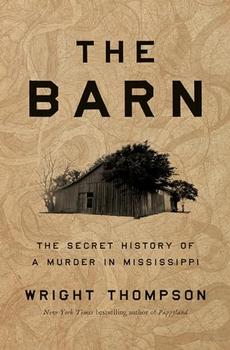Summary | Excerpt | Reading Guide | Reviews | Beyond the Book | Read-Alikes | Genres & Themes | Author Bio

This article relates to The Mothers
In Brit Bennett's debut novel, the mothers are the elderly African African women who devote themselves to Upper Room, the black church in town. "If we laid all our lives toes to heel, we were born before the Depression, the Civil War, even America itself," they report.
 The mothers in the book depend on the church for much of their social and spiritual activities and in turn drive the wheels of the institution, while the congregation as a whole is lead by a male pastor. This pattern, argue many in the black community, has been the case for centuries, with women forming the majority of the congregation (66-88%) and only males being in positions of authority.
The mothers in the book depend on the church for much of their social and spiritual activities and in turn drive the wheels of the institution, while the congregation as a whole is lead by a male pastor. This pattern, argue many in the black community, has been the case for centuries, with women forming the majority of the congregation (66-88%) and only males being in positions of authority.
There are nine historically African American denominations in the United States: African Methodist Episcopal (AME), African Methodist Episcopal Zion (AMEZ), Christian Methodist Episcopal (CME), National Baptist Convention, USA, Incorporated (NBC USA, Inc.), National Baptist Convention of America, Incorporated (NBCA), Progressive National Baptist Convention (PNBC), Church of God in Christ (COGIC), National Missionary Baptist Convention (NMBC),and Full Gospel Baptist Church Fellowship (FGBCF).
 It has been suggested that, "countless, nameless, faceless women who were often the backbone of the church. Aside from the First Lady – the wife of The Reverend – many youngsters reared in Black churches were never called to pay close attention to the women of the church. The Reverend was male. The deacons were male. The trustees were male. The women were the silent ushers who showed guests to seats. The women were the church mothers who privately prepared Communion that they could not be seen touching publicly. The women were the cogs that kept the whole place running, but, except for few who were allowed to teach and guide the children or lead the music, they were largely excluded from church leadership."
It has been suggested that, "countless, nameless, faceless women who were often the backbone of the church. Aside from the First Lady – the wife of The Reverend – many youngsters reared in Black churches were never called to pay close attention to the women of the church. The Reverend was male. The deacons were male. The trustees were male. The women were the silent ushers who showed guests to seats. The women were the church mothers who privately prepared Communion that they could not be seen touching publicly. The women were the cogs that kept the whole place running, but, except for few who were allowed to teach and guide the children or lead the music, they were largely excluded from church leadership."
 Much as is the case in The Mothers, black women's role in church has been to organize social services, missionary societies and reading groups. In yesteryear, they also fought for suffrage and demanded social reform. "The Civil Rights Movement, a movement that is inextricably bound to the African American church was primarily a movement of black women," argues Tiffany Thomas, a black pulpit preacher, in an essay in Christianity Today. "While the great male leaders like Martin Luther King Jr. typically get the credit, it was women like Rosa Parks and Fannie Lou Hamer, and the tens of thousands of unnamed women who were at the March on Washington in 1963 who planned, participated, and even died for the movement. Among the women who gradually challenged the patriarchy was Nannie Burroughs who in a speech to the National Baptist Convention in 1920, advocated for a seat at the table."
Much as is the case in The Mothers, black women's role in church has been to organize social services, missionary societies and reading groups. In yesteryear, they also fought for suffrage and demanded social reform. "The Civil Rights Movement, a movement that is inextricably bound to the African American church was primarily a movement of black women," argues Tiffany Thomas, a black pulpit preacher, in an essay in Christianity Today. "While the great male leaders like Martin Luther King Jr. typically get the credit, it was women like Rosa Parks and Fannie Lou Hamer, and the tens of thousands of unnamed women who were at the March on Washington in 1963 who planned, participated, and even died for the movement. Among the women who gradually challenged the patriarchy was Nannie Burroughs who in a speech to the National Baptist Convention in 1920, advocated for a seat at the table."
As the years have gone by, the status quo has slowly been changing with "evangelists," women who preached the word of God but not from the pulpit, leading the way. This changing attitude is welcome news especially for black women who, according to a Washington Post survey, are, collectively, the most religious group in America, and who can now see more of themselves reflected in church leadership.
Two images of African American Women at church, courtesy of thefrontporch.org
Nannie Burroughs, courtesy of National Women's History Museum
Filed under Places, Cultures & Identities
![]() This "beyond the book article" relates to The Mothers. It originally ran in October 2016 and has been updated for the
October 2017 paperback edition.
Go to magazine.
This "beyond the book article" relates to The Mothers. It originally ran in October 2016 and has been updated for the
October 2017 paperback edition.
Go to magazine.




I write to add to the beauty that now belongs to me
Click Here to find out who said this, as well as discovering other famous literary quotes!
Your guide toexceptional books
BookBrowse seeks out and recommends the best in contemporary fiction and nonfiction—books that not only engage and entertain but also deepen our understanding of ourselves and the world around us.